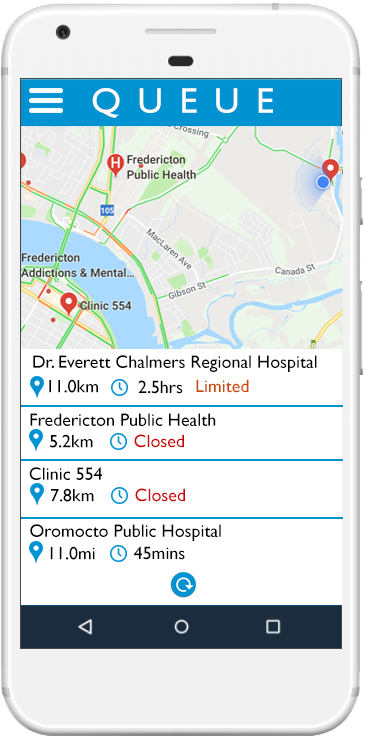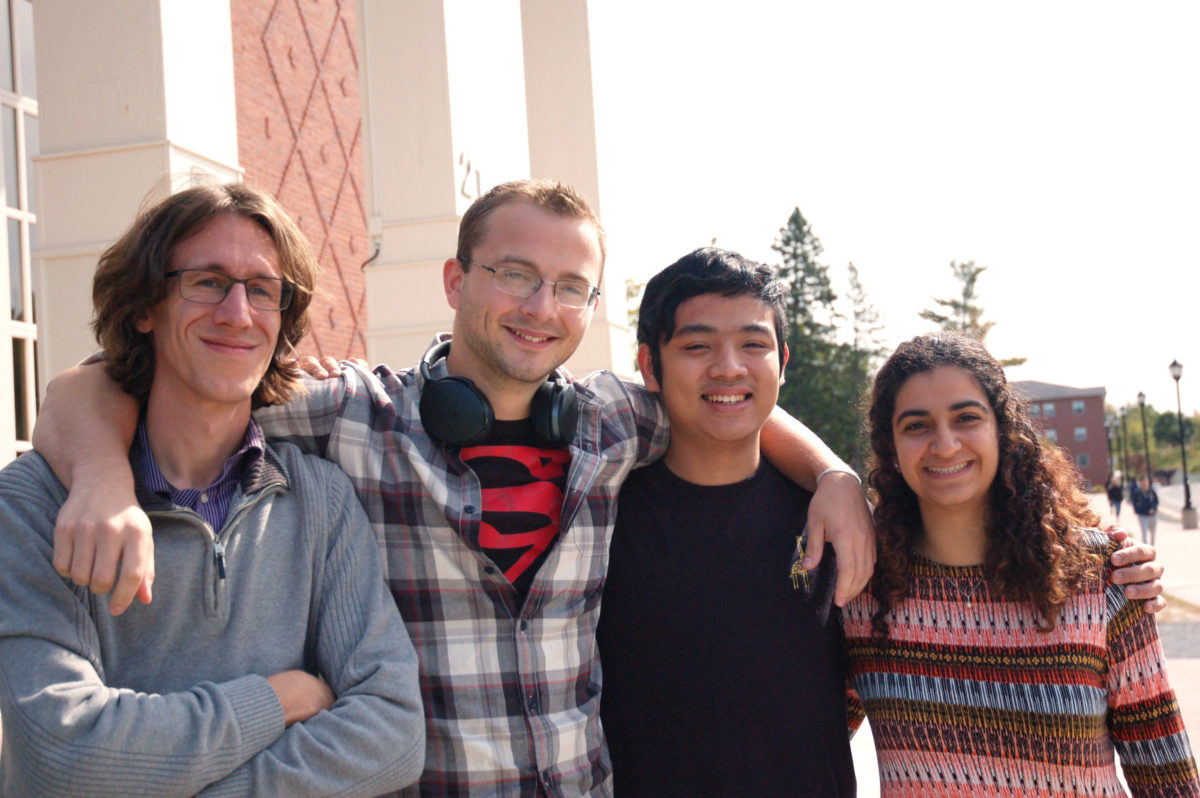Four students are developing a platform called Queue to help New Brunswickers with non-urgent conditions avoid long wait times in hospitals.
The students describe it as “a mobile wait time concierge.”
Chien Dat Nguyen Dinh, second-year electrical engineering student at the University of New Brunswick and founder of Queue, came to Canada in 2013. He appreciates not having to pay for health insurance, but doesn’t like the six to seven hour-long wait times that come along with it.
“I thought it would be a great idea, to make something that helps to know what the wait time is,” said Nguyen Dihn.
At the end of 2017, he got the idea to do something about it. He decided to run with it when he entered the New Brunswick Startup Weekend competition in February 2018.
He teamed up with UNB student Ishtar Al-Tahir, and St. Thomas University students Garrett Moore and Joshua Sallos for the competition. Queue placed second.
The team is about a month and a half into developing the prototype website queue.care.

How it works
Users have two options. They can either use the platform to find nearby facilities and their capacity. If a hospital is full, the app would show this and they can find an alternative. The second option is to go to a facility and be triaged. If you’re a non-urgent case, you would put your Medicare number or ticket number into the app and it would calculate your wait time. You can either stay and wait or leave and receive a text message, call or notification when it’s your turn.
Users do not have to pay a fee.
Moore, communications officer for Queue, describes it as a delicatessen ticketing system.
“You get your number and that’s your number in line. This is sort of similar to that … you’re given your place in line and your place can fluctuate depending if someone is being brought in for emergency care, you’re probably going to be bumped down,” he said.
Besides helping those with non-urgent conditions, Queue would also alleviate some of the stress on emergency rooms and health-care professionals by distributing patients across facilities, instead of loading them all onto one.


Future plans
Although the platform is still in its prototype phase, they hope it can be used to help improve New Brunswick’s health care.
“We’re trying to work hand-in-hand with the existing health-care technologies and support systems, because I think that will just go smoother for everyone,” said Al-Tahir, chief operating officer for Queue.
The Queue team has spoken with executives from New Brunswick Medical Society, Horizon Health Network and Populus Global Solutions, in an attempt to work together.
“New Brunswick is a community and we want to join that community, rather than take over,” said Al-Tahir.


They have also spoken with René Boudreau, assistant deputy health minister, and are waiting to set up meeting times.
Sallos said he wants health-care systems in the province to have a say in the process.
“There’s ways that we can go about launching a platform that either cooperates or does not cooperate with the existing health-care services. But we do want them to have a say and a kind of guiding force in the development and launch of our platform,” he said.
“Bigger picture, I see Queue as a collaborative partner defining and creating a case study for a more effective health system in Canada, but with New Brunswick as that case study.”

